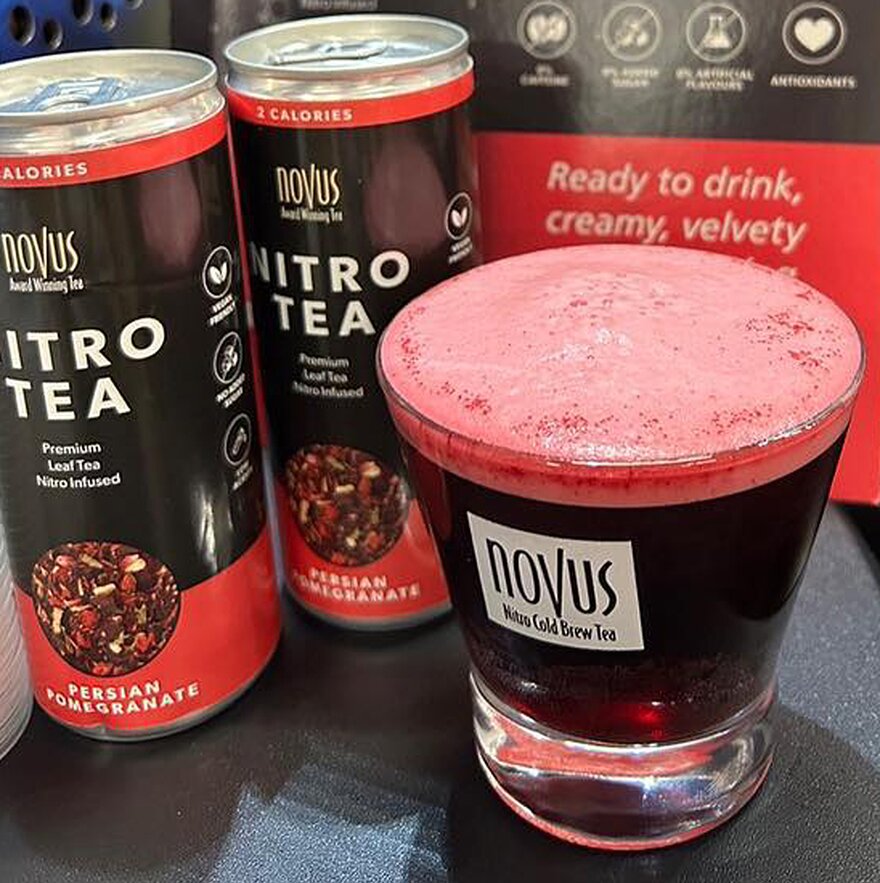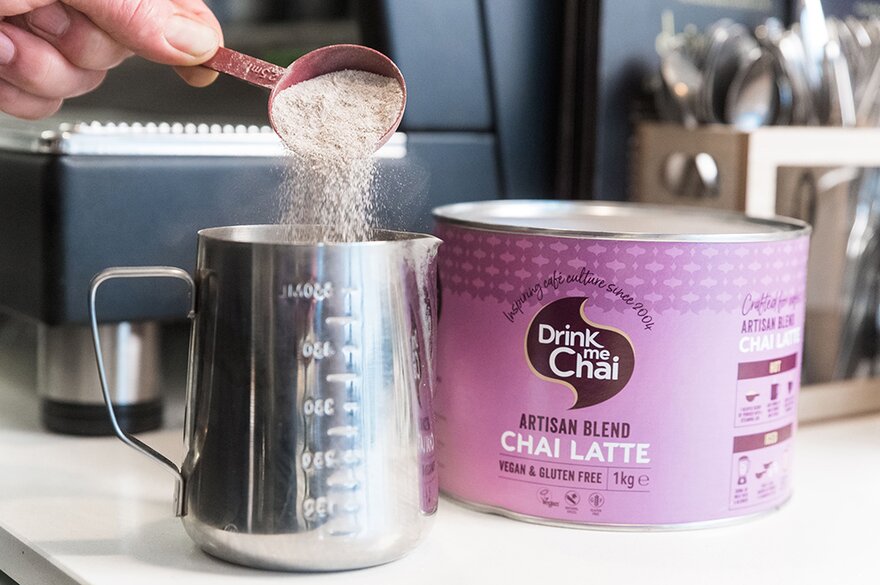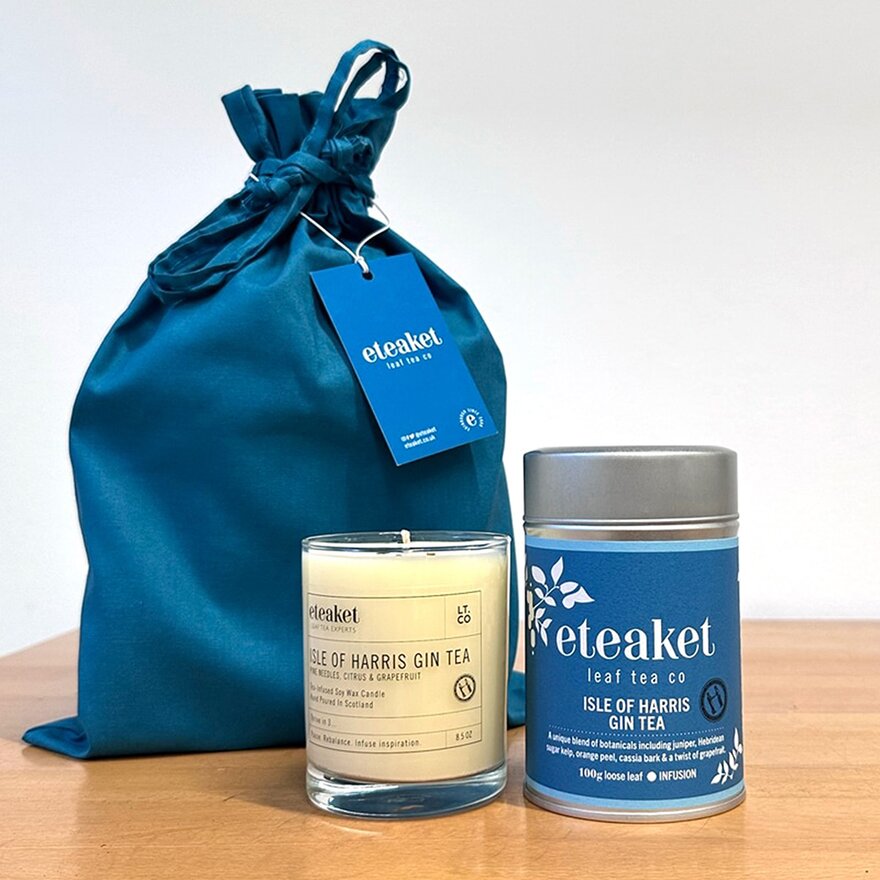A fruity, a herbal, an oolong and a mint – the perfect line up of teas will entice any customer to linger over a pot or two
For many years now, tea companies have been preaching that fruit and herbal infusions are on the rise. There are plenty of statistics out there, including from one operator who said the market for them leapt 24% in the last five years alone.
But with such an extensive array of flavours offered, by both the big tea brands and the artisans, how does any operator construct a practical fruit and herbal tea menu that will actually do business? What is the right balance between these drinks and the traditional tea menu?
At Novus, sales director Allan Pirret makes an interesting point about the proportion of fruits and herbals on a tea menu. "Herbal infusions are growing in volume, with the main driving force being health and wellbeing, with a niche trend appearing for ‘purpose teas', such as those that claim to calm, detox and energise.
"A typical tea menu would require six basic options – English breakfast, Earl Grey, green, a peppermint, a chamomile or rooibos, and a fruit infusion. So 50% of the menu is herbal, and of these, sales of peppermint or our Persian pomegranate, either match or surpass Earl Grey. We now actively encourage operators to show flavours on their menus. Even the savvy coffee outlets now understand the value of these teas, and health is a central concern of the younger generations, which is why we need to excite them with new offerings – our pomegranate flavour was picked because it is low in calories and contains no sugar, which is now popular."
Marco Olmi, managing director at Drury Teas, agrees with the general principle: "What you want to achieve is a balanced menu. That is a breakfast tea, an Earl Grey as your citrus offer – or a lemon or orange flavour – a green as your astringency option, a calming option and definitely something minty and something naturally sweet.
"The most important aspect of a sensible tea menu is judging how large it should be – there's no point including 25 varieties if your customers only ever buy six or seven. You can definitely cover most of the bases with a menu of half a dozen teas and still leave room for guest teas.
"Fitting herbal and fruit offerings can be tricky, but there are ways of doing it to maximise your appeal. Firstly, can you double up on flavoured teas? We do a very nice green tea with lemon and elderflower for instance – that may annoy some purists, but does tick both the green tea and flavoured boxes. The same goes for our orange blossom oolong, a delightful tea rich with the heady scent of orange, which covers two bases: oolong and fruit. The delicate orange petal balances well with the light liquoring of a semi-oxidised oolong.
"Herbals are a bit trickier as you want them to be caffeine-free, but again, you can double up – we do a naturally flavoured vanilla rooibos, which works really well as a sugar-free sweet option on the menu, and our Saharan mint is a blend of our China green gunpowder tea and cut peppermint leaves – the natural astringency is balanced with a fresh minty tang to produce a drink that is both low in caffeine and refreshing."
Take your temperature
At Brew Tea, founder Phil Kirby sees opportunities in tea for operators who take the trouble to promote it seriously.
"We know already that cafés simply don't capitalise on the tea drinkers' calls for better quality tea drinks. Cafés don't raise the bar to match demand, tea drinkers get apathetic, and it becomes a vicious circle," he says.
"In many venues, even today, tea still outsells coffee. However, the brewing of high-quality tea leaves is really important and demands its own attention. Too many venues assume that ‘hot water' alone is good enough for tea, so they use what they already have – this may involve the coffee machine, many of which are sold as offering ‘hot water for tea'.
"But water through coffee machines is optimised purely for the production of coffee, which would typically require a lower temperature. Tea, except for a few marginal circumstances, requires boiling water, which is typically not delivered from coffee equipment. But off-the-boil water is catastrophic for the taste of the tea, so the result is a poor brew tea which doesn't deliver on flavour or strength.
"Using really good quality equipment to enhance the brewing experience at the point of serve presents a massive opportunity to change the way tea is consumed in the out-of-home arena, yet it's rarely done. A simple, stylish hot tap delivering filtered, perfectly boiled water is going to set a better tone than a giant catering urn stuck amongst the rubble on the back counter."
The question of flavours should be considered carefully, he says: "This all comes down to observing how people behave and acting accordingly. The market is dominated by black tea and, until operators are confidently premiumising the everyday cup of tea, it'll continue to be a stagnant market."
However, Brew Tea does approve of carefully-chosen varieties of the traditional black breakfast model. It offers breakfast teas with ‘three tasty twists to start the day', a vanilla breakfast, a lemon breakfast, and a cinnamon breakfast. And the classic ingredients for a breakfast tea, Assam and Kenyan, are the base for Brew's seasonal Oh Christmas! blend, featuring lemon peel, orange oil, cardamom, nutmeg and pink pepper. It is blended in small batches and has a two-year shelf life – but that doesn't matter, says Brew, which is confident it will sell out quickly.
Alcohol-free teas
Eteaket in Edinburgh can take credit for experimenting with several unusual teas, including its Isle of Harris gin tea and a Tomatin whisky tea. Founder Erica Moore has run her own tea-room and has tested most of these ideas on her own customers.
She has family ties to the island of Harris and she became fascinated with the fresh botanical tastes in the local gin; the distillery agreed to share their botanicals recipe, and the tea was launched just before a recent Christmas – Moore thought she had blended enough to last a couple of months, but it sold out in two days.
It can be served hot, but can also be presented as a cold brew, ideally with a little Scots heather honey. It's like a G&T without a hangover, says the founder.
Her imaginative Tomatin whisky tea is Europe's first barrel-aged tea and is created by ageing a blend of Assam, Ceylon and Fujian teas with bergamot (the ingredient used in Earl Grey) and cornflowers. The Tomatin distillery suspends the tea in its whisky barrels, where it picks up smoky and fruity flavours of the whisky. Usefully for caterers, it comes in tea bags; curiously, it is recommended as a morning drink.
Equally unusual are two items from Yorkshire Tea that are worth consideration despite not being sold as catering items. The Bedtime Brew, which the brand typically calls ‘a proper bedtime drink' is a decaf black tea with lemon, lemongrass, nutmeg and vanilla. Meanwhile, for starting the day off right, Yorkshire's Toast and Jam tea is offered as ‘a mighty morning brew with a lip-smacking smattering of toasty, jammy loveliness… but absolutely no jam on your chin'.
At Clipper, out-of-home chief Adam Perry says his top performers in the catering sector are organic lemon and ginger, and organic berry burst. Infusions, he says, are a key opportunity for reinvigorating tea menus in 2024.
And chai remains a growing favourite for flavour. The Bird & Blend brand reports that its gingerbread chai brand is one of their catering bestsellers. Aimia Foods has recently run an independent blind taste test in which customers of varying demographics sampled five different types of chai from four leading competing brands. The Artisan blend from Drink Me Chai came out on top, with seven out of eight regular chai drinkers saying it is the one they would choose to buy.
In an interesting aside, Aimia reports that two-thirds of chai drinkers clearly preferred a powdered chai to drinks made from chai-flavoured syrups; the powder was considered ‘more authentic'. However, a useful aspect of the Artisan powder is that it can easily be combined with one of the familiar flavoured syrups to create a unique house blend.
And that sums up an interesting clue to the tea business: if you keep your eyes open, there is no end of interesting and attention-getting flavour ideas to be profitably laid in front of customers.
Suppliers
Drink Me Chai www.aimiafoods.com
Clipper www.clipper-teas.com
Eteaket www.eteaket.co.uk
Bird & Blend www.birdandblendtea.com
Drury www.drurycoffee.com
Novus www.novustea.co.uk
Yorkshire Tea www.yorkshiretea.co.uk












